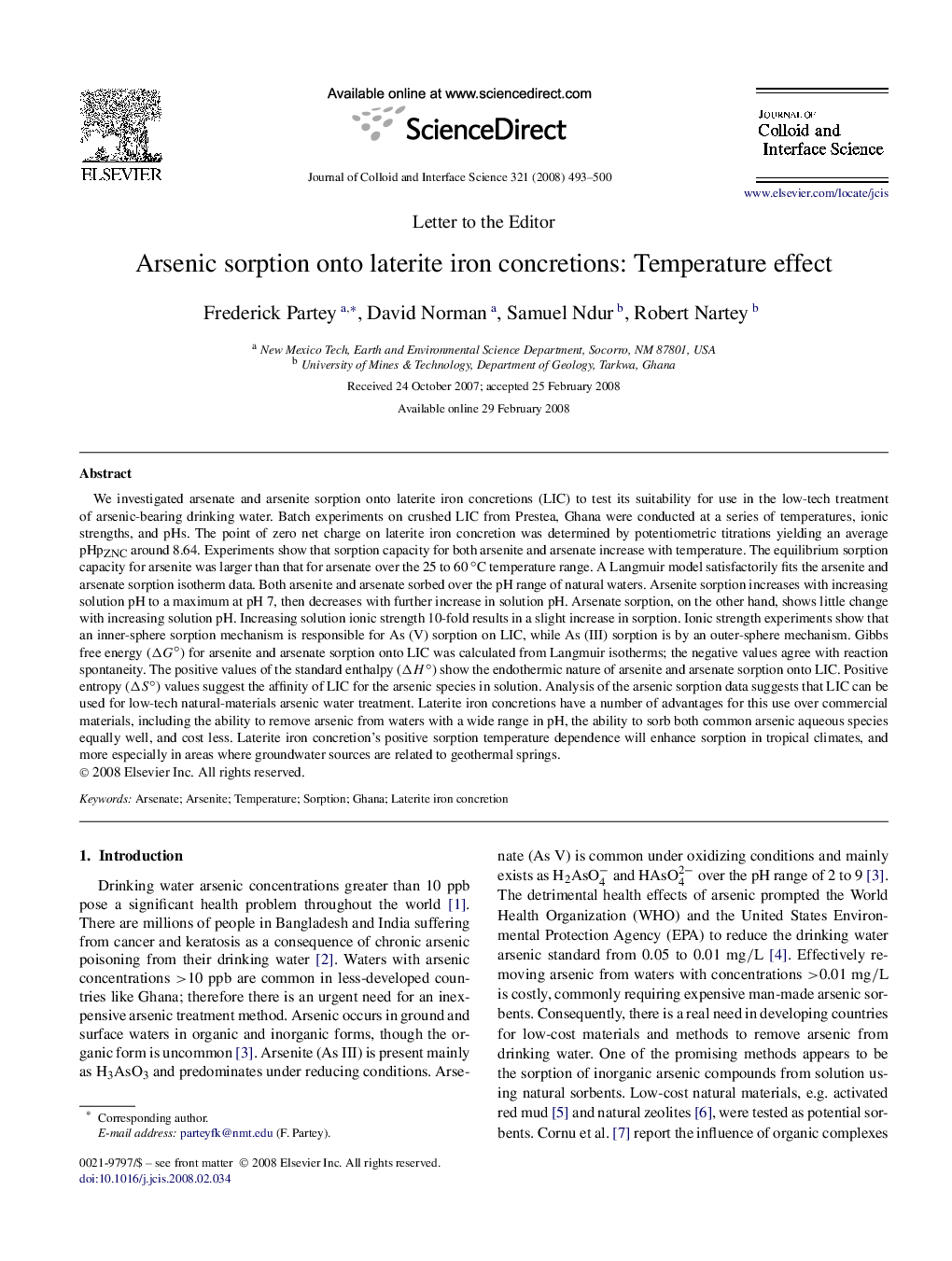| Article ID | Journal | Published Year | Pages | File Type |
|---|---|---|---|---|
| 611246 | Journal of Colloid and Interface Science | 2008 | 8 Pages |
We investigated arsenate and arsenite sorption onto laterite iron concretions (LIC) to test its suitability for use in the low-tech treatment of arsenic-bearing drinking water. Batch experiments on crushed LIC from Prestea, Ghana were conducted at a series of temperatures, ionic strengths, and pHs. The point of zero net charge on laterite iron concretion was determined by potentiometric titrations yielding an average pHpZNC around 8.64. Experiments show that sorption capacity for both arsenite and arsenate increase with temperature. The equilibrium sorption capacity for arsenite was larger than that for arsenate over the 25 to 60 °C temperature range. A Langmuir model satisfactorily fits the arsenite and arsenate sorption isotherm data. Both arsenite and arsenate sorbed over the pH range of natural waters. Arsenite sorption increases with increasing solution pH to a maximum at pH 7, then decreases with further increase in solution pH. Arsenate sorption, on the other hand, shows little change with increasing solution pH. Increasing solution ionic strength 10-fold results in a slight increase in sorption. Ionic strength experiments show that an inner-sphere sorption mechanism is responsible for As (V) sorption on LIC, while As (III) sorption is by an outer-sphere mechanism. Gibbs free energy (ΔG°ΔG°) for arsenite and arsenate sorption onto LIC was calculated from Langmuir isotherms; the negative values agree with reaction spontaneity. The positive values of the standard enthalpy (ΔH°ΔH°) show the endothermic nature of arsenite and arsenate sorption onto LIC. Positive entropy (ΔS°ΔS°) values suggest the affinity of LIC for the arsenic species in solution. Analysis of the arsenic sorption data suggests that LIC can be used for low-tech natural-materials arsenic water treatment. Laterite iron concretions have a number of advantages for this use over commercial materials, including the ability to remove arsenic from waters with a wide range in pH, the ability to sorb both common arsenic aqueous species equally well, and cost less. Laterite iron concretion's positive sorption temperature dependence will enhance sorption in tropical climates, and more especially in areas where groundwater sources are related to geothermal springs.
Graphical abstractExperiments show that adsorption capacity for both arsenite and arsenate increases with temperature. The equilibrium adsorption capacity for arsenite is greater than that for arsenate over the 25 to 60 °C.Figure optionsDownload full-size imageDownload as PowerPoint slide
